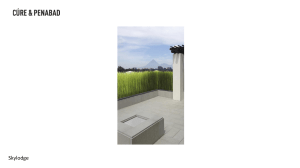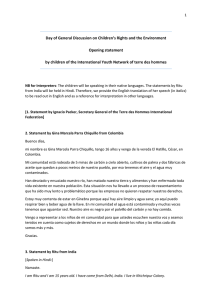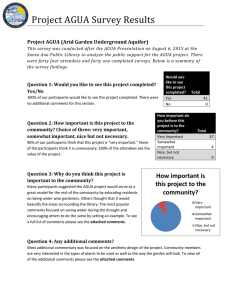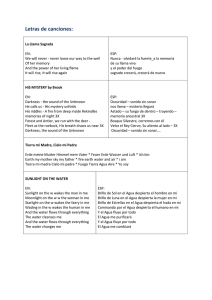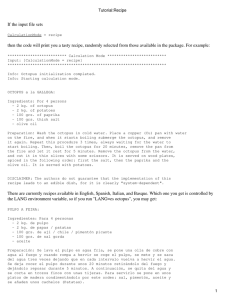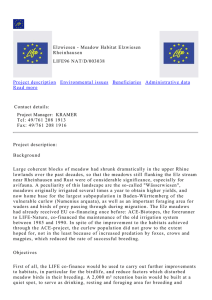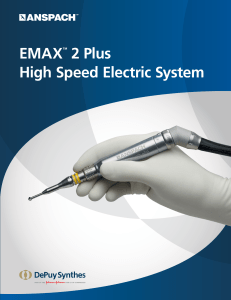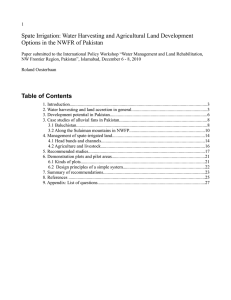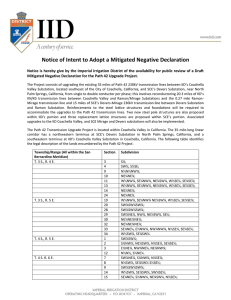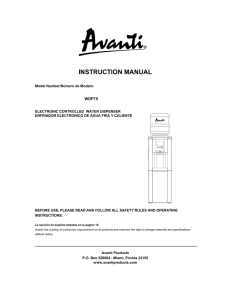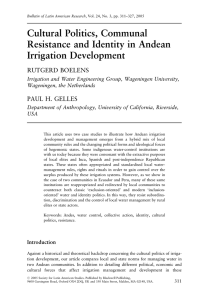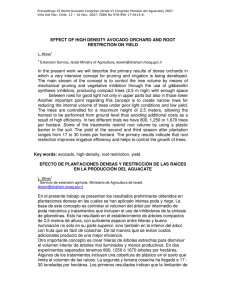university intervention to improve the transfer of knowledge
Anuncio
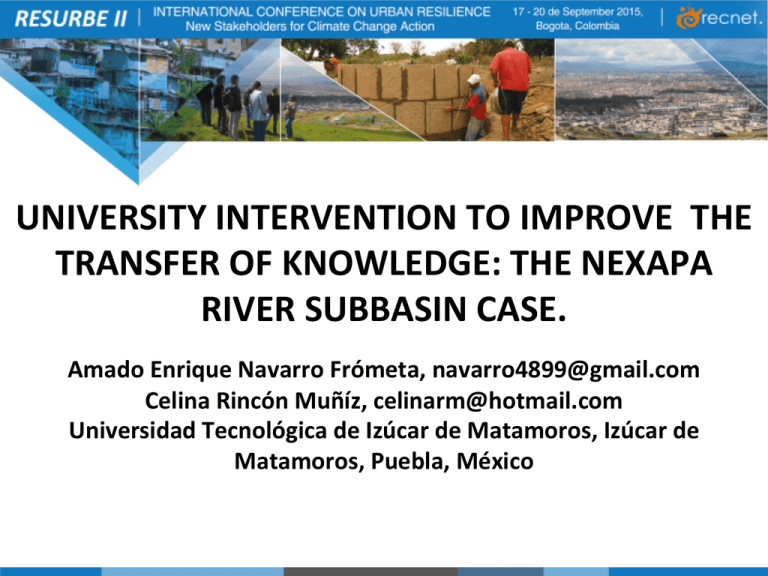
UNIVERSITY INTERVENTION TO IMPROVE THE TRANSFER OF KNOWLEDGE: THE NEXAPA RIVER SUBBASIN CASE. Amado Enrique Navarro Frómeta, navarro4899@gmail.com Celina Rincón Muñíz, celinarm@hotmail.com Universidad Tecnológica de Izúcar de Matamoros, Izúcar de Matamoros, Puebla, México A Puebla Atlixco The Nexapa river subbasin v Sources in the Popocatepel; v Almost 500,000 people depends on it; v Portezuelo´s channel. Transfer of heavily polluted waters from the Atoyac river aaer the city of Puebla (4 m3 s-­‐1). v Many discharges direct to SW. Atlixco & Izúcar have WWTP since 2012. B Izúcar de Matamoros v Agriculture: waste of 40-­‐50 % of irrigajon water and excess of ferjlizers and agrochemicals. v Sugar cane, fruits, vegetables, 16 to 40% Middle to High Marginajon and Food poverty (from CONEVAL series 2010). So, what has done the Technological University of Izúcar de Matamoros to generate the necessary knowledge about the threats and risks and put it in the hands of the people and the authorijes? Study of river and irrigation water, focalized in the municipality of Izúcar. S t u d y o f r i v e r, underground and irrigation water in the subbasin. Assessment of use and quality of water for human use. Evaluation of the impact of industrial activities in the municipality of Izúcar, Studies of surface and underground waters. Study of the perception of the population on water theme. Study of constructed wetlands for municipal and river water treatment. Study of irrigation water use in sugarcane Evaluation of hybrid constructed wetlands for WW tertiary treatment. And knowledge transfer? With authorijes Delivery of detailed technical reports to municipal, water and other authorities. Information transfer to other educational institutions. With our children With youngsters Participation in the activities of the Technical Junior High schools of the Izúcar region (Quetzalatl Brigades) and transmission of constructed wetlands technology. With the public in general ¿Se me ensuciaron las manos? Abro la llave del baño y me las lavo. ¿Tengo sed? Me sirvo un vaso de agua. ¿Es la hora de bañarse? Abro la regadera. Así de simple es obtener el agua cuando la necesitamos, pero podría no ser así siempre. El agua es un recurso natural que puede agotarse. El agua que hay en este planeta es muchísima, cubre las dos terceras partes del globo, pero en su mayoría es agua salada. El agua dulce existe en una proporción mucho menor y es un recurso natural que debemos cuidar porque como todos los recursos de nuestra Tierra se agotan. Radio programs on water issues. Distribution of printed information to the public. With the main users of irrigation waters Meetings with landowners to inform them of the result set from their soil analysis and proper use of water in sugar cane irrigation (with other institutions and associations) Forum with women users of irrigation a) Between 40 and 60 % of irrigation water is wasted; b) There is a significant difference between the use of water in rural and urban environments, with a lag of infrastructure and little awareness of this situation; c) management of water treatment and people´s perception of solutions lies in centralized technologies and there is little knowledge of green technologies, including those at domestic level; d ) women and adolescents are receptive when they are alerted about the water situation; e) the household water does not have the quality required to ensure adequate health levels; f) it fails to maintain the commitment of the population to the water situation outside the campaigns with that purpose. Among other solutions the UTIM has implemented training programs on the use of irrigation techniques, the use of constructed wetlands to improve water management and environmental education campaigns, including the dissemination of information on the state of water resources and reporting to local authorities. Unfortunately, the authorities paid a very inadequate attention to the information and prefer the intervention of major universities.
